Why you can trust Tom's Hardware
Our HDR benchmarking uses Portrait Displays’ Calman software. To learn about our HDR testing, see our breakdown of how we test PC monitors.
The M27Q X supports HDR10 signals and switches modes automatically with no need for user intervention. Traditional picture adjustments are locked out, but a few new options appear if you want to tailor the look of the HDR image.
HDR Brightness and Contrast
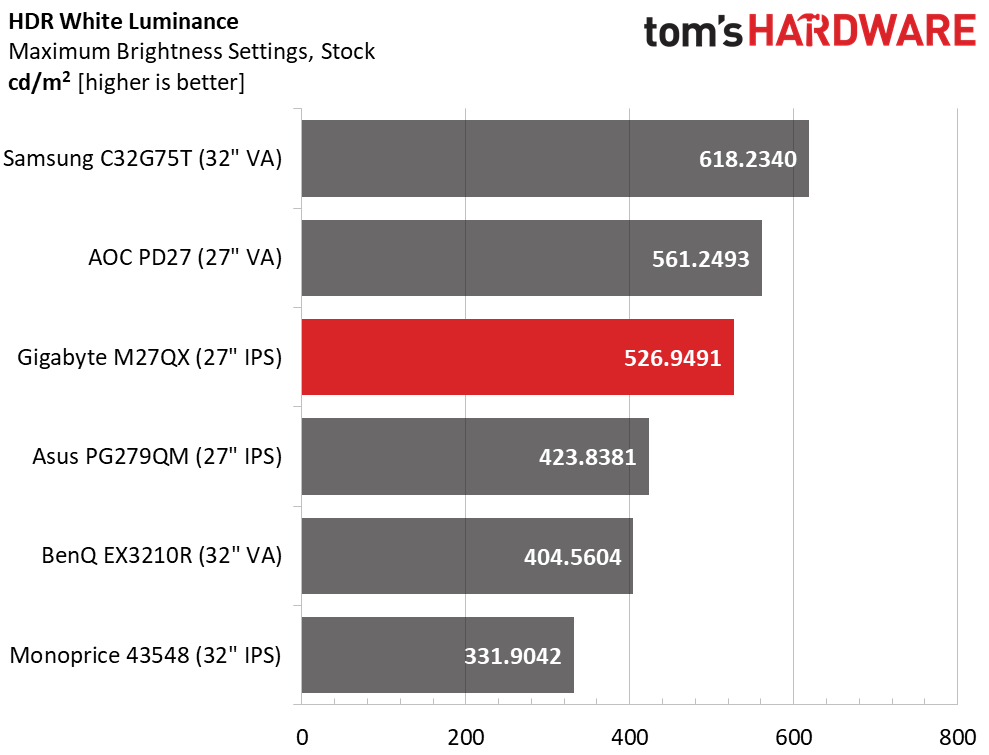
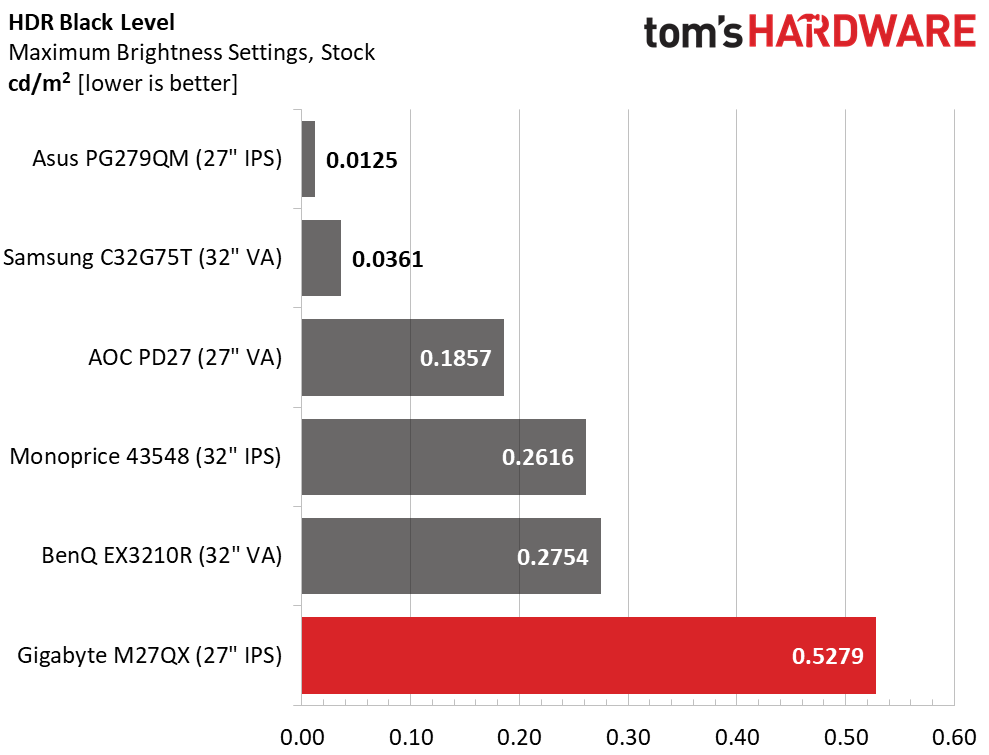
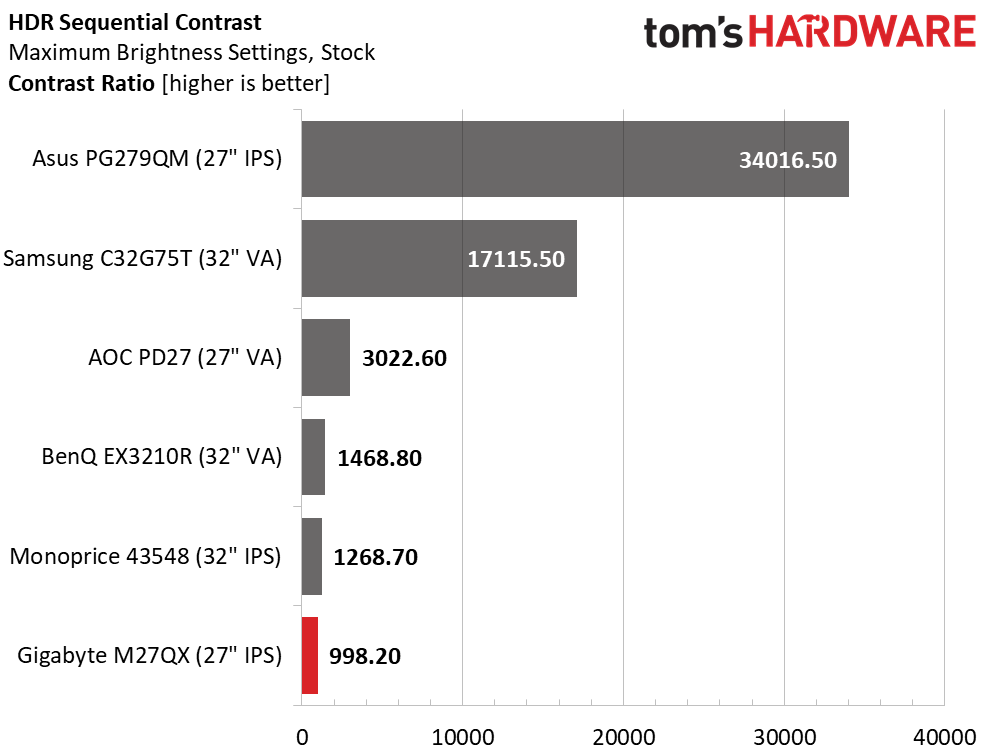
The M27Q X is rated for 400 nits in HDR mode, but my sample topped 526 nits. That’s very bright, so highlight areas will pop nicely. Unfortunately, there’s no dynamic contrast here so the black level is also quite bright. HDR contrast is no higher than SDR. The picture looks a tad more saturated in some content, but it is mostly the same feel. The top Asus and Samsung screens vary the backlight to improve black levels, so their ratios are much higher.
Grayscale, EOTF and Color
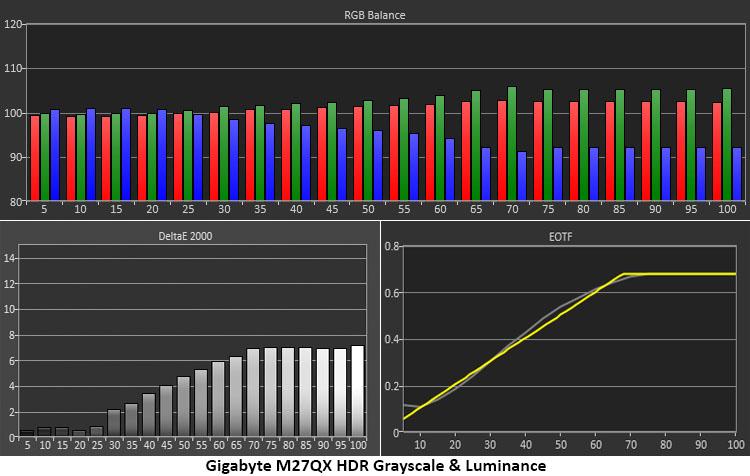
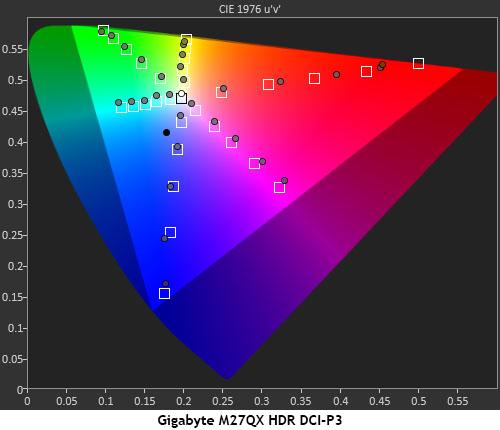
The M27Q X’s HDR grayscale tracking is solid until the mid-point, where blue starts to diminish. The picture looks a bit warm but not too far off the mark. You can increase the Color Enhance slider in the HDR menu to add some blue, but red and green will also be increased. This helps some content look better. The EOTF tracks closely to spec except for the 0 and 5% steps, which are too light. Here is where dynamic contrast would be a benefit. HDR black levels are too high. Though shadow detail is plainly visible, it’s more a dark gray than true black.
HDR color saturation is very good, with reds a little past their targets. Only 100% red comes up short. Blue and green are almost exactly on their targets. The yellowish-white point pulls magenta and cyan off a little, but this is a minor error. The M27Q X’s HDR color is a little more accurate than most of the HDR monitors I’ve tested.
Get Tom's Hardware's best news and in-depth reviews, straight to your inbox.

Christian Eberle is a Contributing Editor for Tom's Hardware US. He's a veteran reviewer of A/V equipment, specializing in monitors. Christian began his obsession with tech when he built his first PC in 1991, a 286 running DOS 3.0 at a blazing 12MHz. In 2006, he undertook training from the Imaging Science Foundation in video calibration and testing and thus started a passion for precise imaging that persists to this day. He is also a professional musician with a degree from the New England Conservatory as a classical bassoonist which he used to good effect as a performer with the West Point Army Band from 1987 to 2013. He enjoys watching movies and listening to high-end audio in his custom-built home theater and can be seen riding trails near his home on a race-ready ICE VTX recumbent trike. Christian enjoys the endless summer in Florida where he lives with his wife and Chihuahua and plays with orchestras around the state.